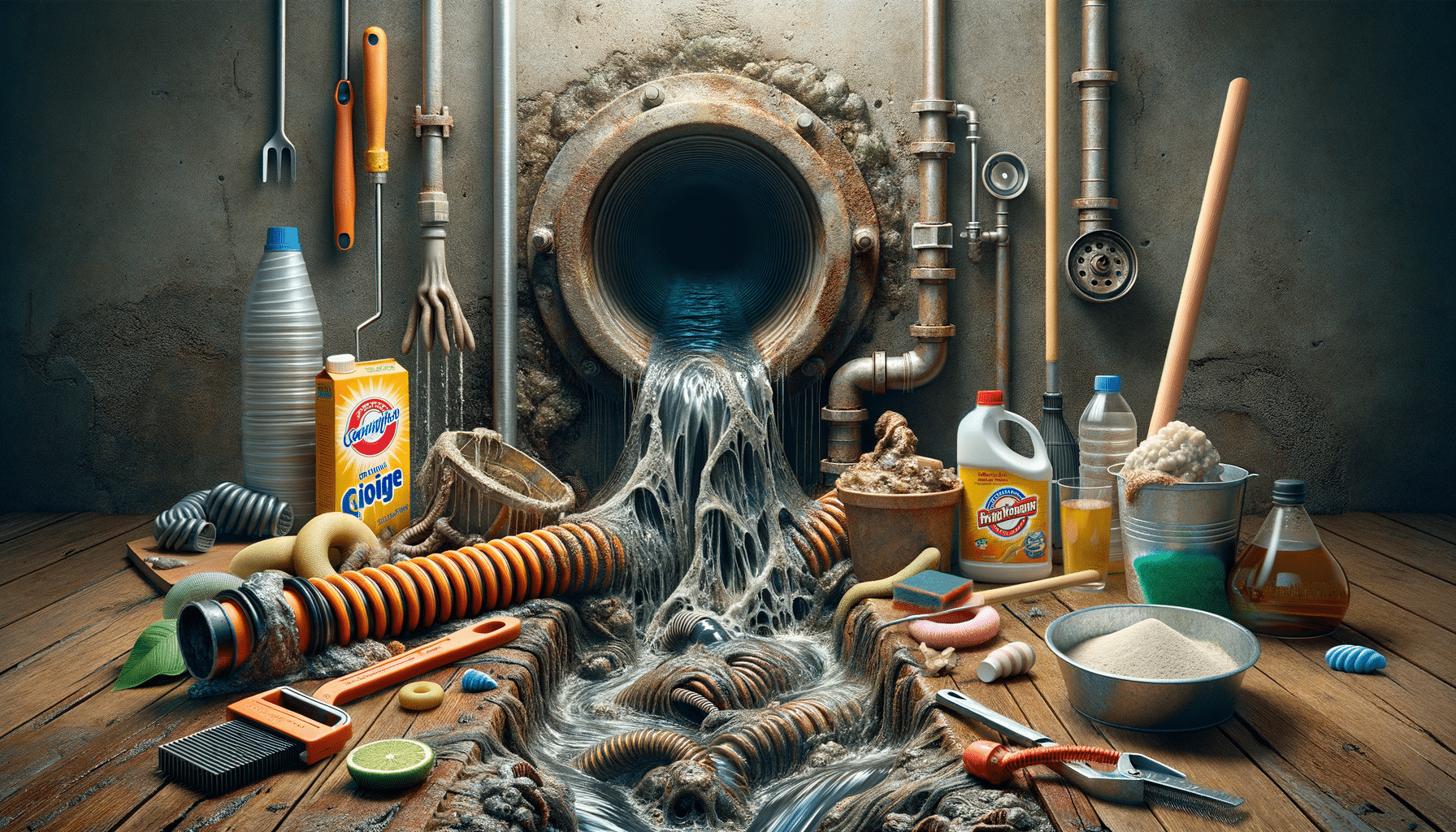
Clogged Drain? Try these 3 tricks before calling a plumber.
Understanding the Basics of Drain and Pipe Systems
Before diving into cleaning methods, it’s essential to understand the basic structure of your home’s drainage system. Drains and pipes work together to efficiently remove wastewater from your home. A typical system includes a network of pipes that connect to various fixtures such as sinks, toilets, and showers. These pipes then lead to larger sewer lines or septic systems.
The materials used in these systems can vary, with common ones being PVC, copper, and cast iron. Each material has its strengths and weaknesses, affecting its susceptibility to clogs and corrosion. For instance, PVC is lightweight and resistant to rust, making it a popular choice for many homeowners. On the other hand, cast iron is known for its durability but can corrode over time.
Understanding these fundamentals can help you identify potential issues early and choose the right cleaning methods. Regular maintenance and awareness of the materials used in your system can prevent clogs and extend the life of your pipes.
Common Causes of Clogged Drains
Clogged drains are a common household issue that can lead to more severe plumbing problems if not addressed promptly. Various factors contribute to blockages, with the most frequent being the accumulation of debris such as hair, soap scum, and food particles.
In kitchens, grease and food scraps are the primary culprits. When grease is poured down the drain, it cools and solidifies, creating a sticky trap for other debris. In bathrooms, hair and soap residue often combine to form stubborn clogs. Toilets can become blocked due to the flushing of non-flushable items like wipes and sanitary products.
Environmental factors like tree roots can also invade underground pipes, causing blockages and potential damage. Recognizing these common causes can help in taking preventive measures and selecting the appropriate cleaning techniques.
Effective DIY Methods for Drain Cleaning
While severe clogs may require professional assistance, many minor blockages can be resolved with simple DIY methods. Here are a few effective techniques:
- Boiling Water: Pouring boiling water down the drain can help dissolve grease and soap scum, clearing minor clogs.
- Baking Soda and Vinegar: A natural cleaning solution, this combination creates a fizzing reaction that can break down debris.
- Plunger: A plunger can be used to dislodge clogs by creating a vacuum effect.
These methods are not only cost-effective but also environmentally friendly. However, it’s crucial to avoid using chemical drain cleaners frequently, as they can damage pipes over time.
When to Call a Professional
While DIY methods are useful for minor clogs, certain situations necessitate professional intervention. If you notice persistent clogs, slow drainage, or foul odors, it might be time to consult a plumber. Professionals have the tools and expertise to handle complex issues such as:
- Tree Root Invasion: Specialized equipment is required to remove roots from pipes without causing damage.
- Severe Blockages: For clogs that resist standard methods, plumbers can use techniques like hydro jetting to clear pipes.
- Pipe Damage: If pipes are cracked or corroded, a professional can assess and repair or replace them as needed.
Knowing when to call a professional can save you time and prevent further damage to your plumbing system.
Preventive Measures to Keep Drains Clear
Prevention is always better than cure, and this holds true for drain maintenance. By adopting a few simple habits, you can keep your drains clear and functioning efficiently:
- Regular Cleaning: Use natural cleaners like baking soda and vinegar regularly to prevent buildup.
- Mindful Disposal: Avoid disposing of grease, coffee grounds, and non-flushable items down the drain.
- Install Drain Guards: These can catch hair and food particles before they enter the pipes.
Implementing these preventive measures can help maintain a healthy plumbing system, reducing the likelihood of clogs and costly repairs.